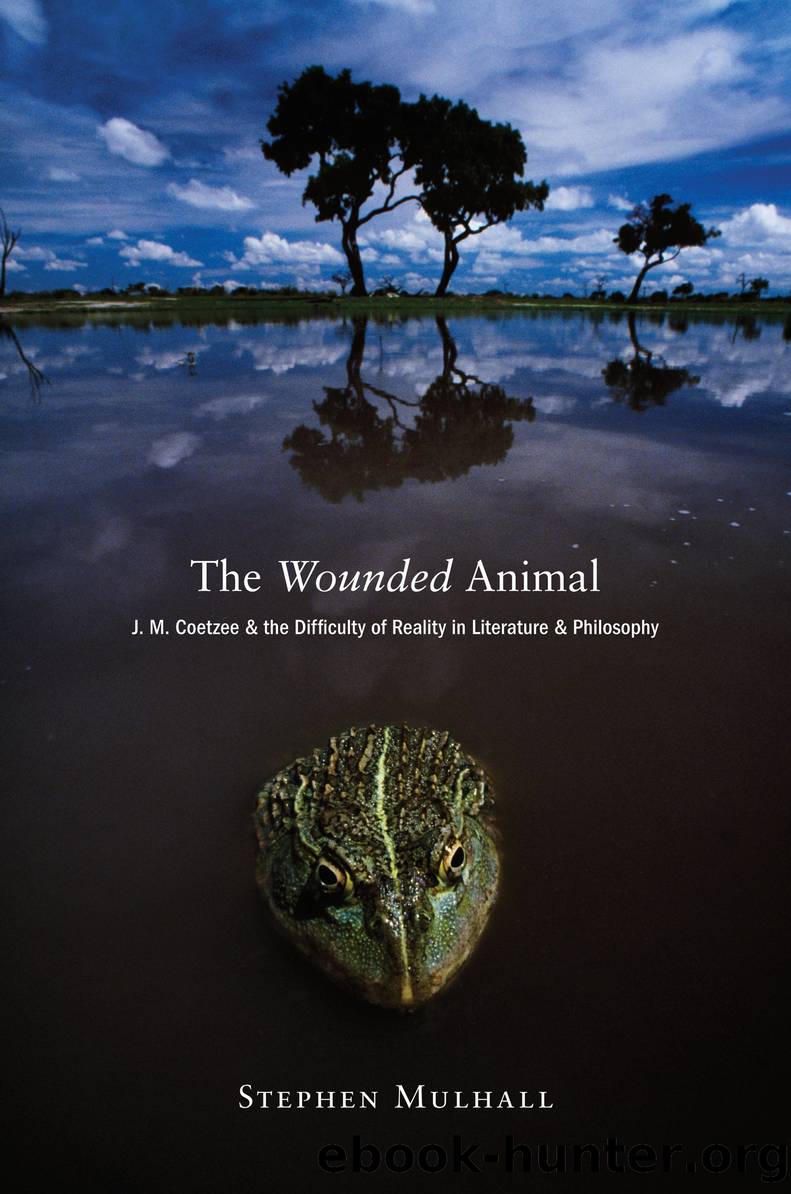The Wounded Animal by Stephen Mulhall;

Author:Stephen Mulhall;
Language: eng
Format: epub
Publisher: Princeton University Press
Published: 2022-06-15T00:00:00+00:00
Singer and Garber
So much for another poetâs attempts to articulate the otherness of animals. But of course, Costelloâs seminar was just as much designed to underline the mysteriousness of literature as that of animality. She persistently pictures its manifestations in poetry as fundamentally obscure phenomenaâones that depend upon an enigmatic capacity to understand nonexistent beings, and to understand their nonexistence as internally related to real beings, and in particular to the real being of their authors, and of the literary, cultural, social, and historical contexts within which they are all embedded. Appreciating the contours of her lecture and seminar from this perspective thus returns us to one of the examples she deploys in her lecture to illustrate the incomprehensible comprehensibility of animal modes of beingâher comparison between thinking oneâs way into the being of fictional characters, and thinking oneâs way into the being of other living creatures.
It is worth recalling that this is a point that Singerâs central character, Peter, cites only in order to dismiss, in his fictional response to Costelloâs lecture. The dismissal occurs towards the end of the tale in which he stars, immediately after he has used the example of the Kahlua bottle to criticise Costelloâs talk of fullness of animal being:
Thatâs not the worst argument, either. Listen to this. Costello is talking about a book she has written in which she thinks herself into the character of Joyceâs Marion Bloom, and then she says,
âIf I can think my way into the existence of a being who has never existed, then I can think my way into the existence of a bat or a chimpanzee or an oyster, any being with whom I share the substrate of life.â
Naomi is glad to leave the topic of Kahlua: âYou donât have to be a philosopher to see what is wrong with that. The fact that a character doesnât exist isnât something that makes it hard to imagine yourself as that character. You can imagine someone very like yourself, or like someone else you know. Then it is easy to think your way into the existence of that being. But a bat, or an oyster? Who knows? If thatâs the best argument Coetzee can put up for his radical egalitarianism, you wonât have any trouble showing how weak it is. (LA, 90â91)
Download
This site does not store any files on its server. We only index and link to content provided by other sites. Please contact the content providers to delete copyright contents if any and email us, we'll remove relevant links or contents immediately.
The Lonely City by Olivia Laing(4618)
Animal Frequency by Melissa Alvarez(4233)
All Creatures Great and Small by James Herriot(4068)
Walking by Henry David Thoreau(3753)
Exit West by Mohsin Hamid(3684)
Origin Story: A Big History of Everything by David Christian(3520)
COSMOS by Carl Sagan(3411)
How to Read Water: Clues and Patterns from Puddles to the Sea (Natural Navigation) by Tristan Gooley(3295)
Hedgerow by John Wright(3168)
How to Do Nothing by Jenny Odell(3143)
The Inner Life of Animals by Peter Wohlleben(3142)
How to Read Nature by Tristan Gooley(3134)
Project Animal Farm: An Accidental Journey into the Secret World of Farming and the Truth About Our Food by Sonia Faruqi(3069)
Origin Story by David Christian(3045)
Water by Ian Miller(3023)
A Forest Journey by John Perlin(2955)
The Plant Messiah by Carlos Magdalena(2791)
A Wilder Time by William E. Glassley(2730)
Forests: A Very Short Introduction by Jaboury Ghazoul(2712)
